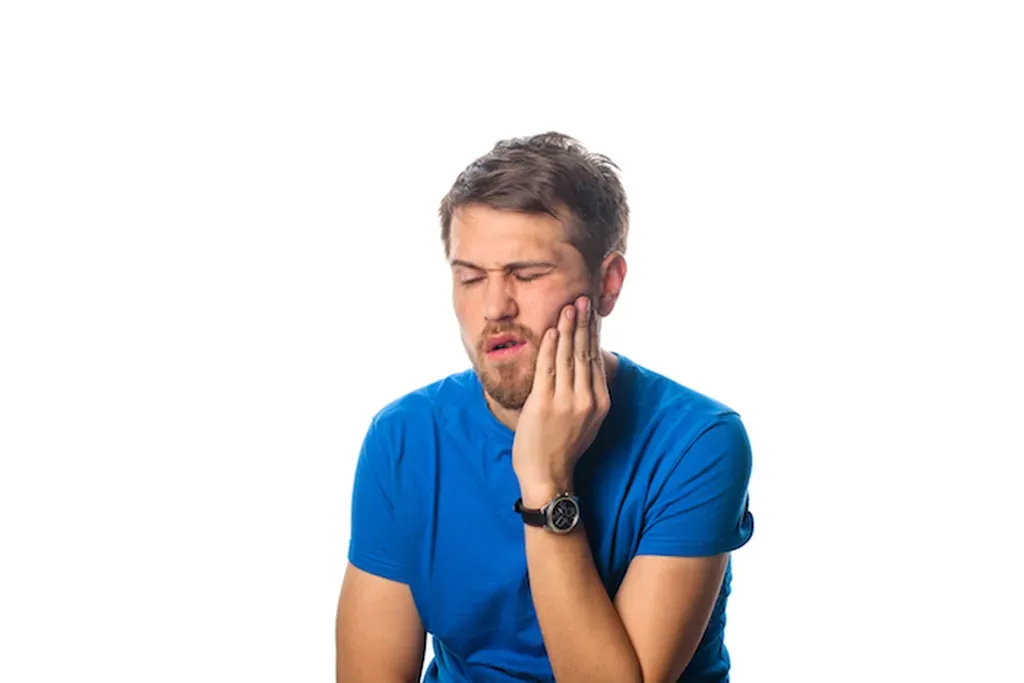It usually happens when you sit down to eat a meal — your jaw starts to hurt. It may be a dull ache or a sharp, stabbing pain. Why does this happen?
The most likely cause is a problem with your temporomandibular joints (TMJs), the hinged joints just in front of your ears on each side of your head. The joints connect your jawbone to your skull, allowing you to open and close your mouth, eat, talk, and yawn.
At Fluegge Family Dentistry in East Wenatchee, Washington, Dr. Matthew Fluegge and our team treat TMJ dysfunction for our patients dealing with its pain, limited jaw movement, or even lockjaw. If your jaw persistently hurts after eating, here’s what you need to know about the condition and what we can do to help.
A note about terminology
Problems with your jaw joints and the muscles in your face that control them are called temporomandibular disorders (TMDs). However, you may also hear them called TMJ disorders or TMJ dysfunction, and many people simply refer to the condition as TMJ, even though that’s just the name of the joint.
No matter what you call it, it amounts to the same thing — an issue with the joint(s) that leads to pain, stiffness, and other uncomfortable symptoms.
What causes TMJ?
Any number of things can lead to dysfunction of the TMJ, including:
- Arthritis
- Other degenerative joint conditions
- Disc movement in the ball-and-socket joint
- Traumatic injury
- Connective tissue diseases
By far, the leading cause of TMJ is bruxism, which involves clenching and/or grinding teeth due to stress, both of which often occur while you’re sleeping. In these cases, Dr. Fluegge can easily diagnose the problem due to the wear on the back teeth, and he most likely will treat it with a nightguard, a plastic device that fits over either the upper or lower arch of teeth and prevents the teeth from touching.
Another common cause is resting your chin in your hand and your elbow against your desk. The force placed on the facial structures can damage your temporomandibular joint.
Research shows that neither a misaligned bite nor a mouthful of braces leads to TMDs, but women are twice as likely as men to have TMDs, which may reflect differences in TMJ structure and mechanics between the sexes. Studies are ongoing.
TMJ symptoms
TMJ dysfunction often leads to severe pain and discomfort that may be temporary or may last years and can affect one or both sides of your jaw. It’s most common among people 20-40 years old.
The most common symptom is pain or tenderness in the face, jaw joint, neck, and shoulders, as well as in or around the ears, when you chew, speak, or yawn.
Other common symptoms include:
- Inability to open your mouth wide
- Jaws that get dislocated or “locked” open or closed
- Clicking, popping, or grating sounds with jaw movement
- Difficulty chewing or a suddenly uncomfortable bite
- Swelling on the side of your face
- Toothaches
- Earaches
- Tinnitus (ringing in the ears)
- Headaches or migraine
- Dizziness
If the joint impinges on a facial nerve, you may experience pain down the length of the nerve, even into your fingers.
Treating TMJ
How Dr. Fluegge treats your TMJ depends on the cause of your symptoms and the extent of the damage producing them. In some cases, modifying your habits — such as not resting your chin in your hand — can do the trick.
If bruxism is to blame, we’ve already talked about nightguards, but they aren’t the only option. Learning to mindfully reduce your stress is a great choice, whether it’s through meditation, yoga, or just doing something fun. Dr. Fluegge also offers top-quality oral appliances that gently shift your bite so you can’t brux.
Over-the-counter medications like NSAIDs can help with minor discomfort or swelling. We also have prescription options that control pain or help you sleep.
Muscle relaxants can also provide relief by changing the tension in the muscles that support your jaw. Surgery is seldom an option.
If your jaw hurts every time you eat, there’s a good chance it’s TMJ-related. To learn more or to schedule a consultation with Dr. Fluegge, call our office at 509-888-3384 or book online today.

